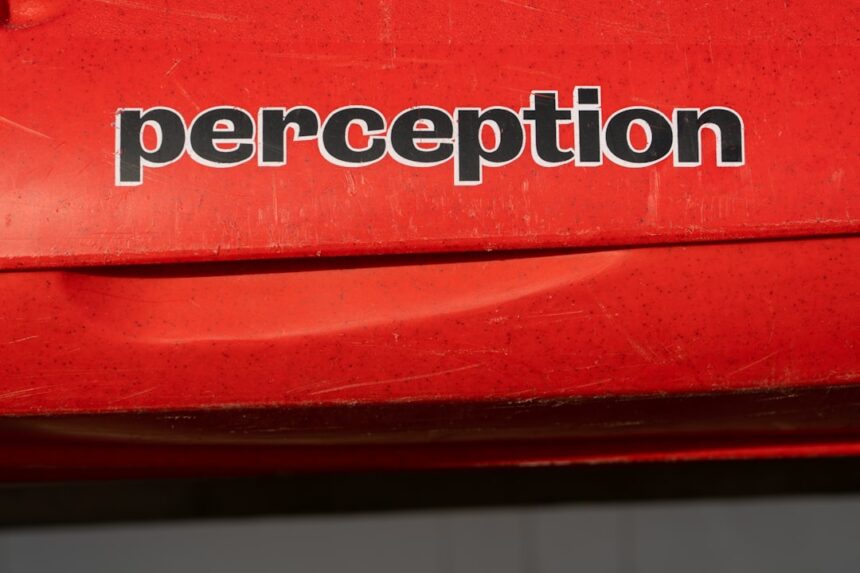Depersonalization Derealization Disorder (DPDR) is a complex mental health condition that can leave you feeling detached from your own thoughts, feelings, and sense of self. It often manifests as a persistent or recurrent experience of feeling disconnected from your body or surroundings. You might find yourself observing your life as if you were an outsider, leading to a profound sense of unreality.
This disorder can be disorienting and distressing, making it difficult for you to engage fully with the world around you. The experience of depersonalization can feel like you are watching yourself in a movie, while derealization can make your environment seem strange or unreal. These sensations can be triggered by stress, trauma, or anxiety, and they can occur in episodes that may last for varying lengths of time.
While many people may experience fleeting feelings of depersonalization or derealization at some point in their lives, those with DPDR experience these sensations persistently, which can significantly impact their daily functioning and overall quality of life.
Key Takeaways
- Depersonalization Derealization Disorder is a mental health condition characterized by feeling detached from oneself and the surrounding environment.
- Symptoms of Depersonalization Derealization Disorder include feeling like an outside observer of one’s thoughts and actions, emotional numbness, and distorted perception of time and space.
- Causes of Depersonalization Derealization Disorder may include trauma, stress, anxiety, and substance abuse.
- Diagnosing Depersonalization Derealization Disorder involves a thorough evaluation of symptoms, medical history, and ruling out other potential causes.
- Treatment options for Depersonalization Derealization Disorder may include therapy, medication, and stress management techniques.
- Living with Depersonalization Derealization Disorder can be challenging, but support from mental health professionals, loved ones, and self-care practices can help manage symptoms and improve quality of life.
- Dissociative Amnesia is a condition characterized by memory loss, often related to traumatic or stressful events.
- Symptoms of Dissociative Amnesia include gaps in memory, confusion about personal identity, and distress related to memory loss.
- Causes of Dissociative Amnesia may include trauma, such as physical or emotional abuse, and extreme stress.
- Diagnosing Dissociative Amnesia involves a comprehensive assessment of symptoms, medical history, and ruling out other potential causes of memory loss.
- Treatment options for Dissociative Amnesia may include therapy, medication, and creating a safe and supportive environment to help recover lost memories.
Symptoms of Depersonalization Derealization Disorder
The symptoms of Depersonalization Derealization Disorder can vary widely from person to person, but they generally revolve around feelings of detachment and unreality. You may experience a sense of being disconnected from your thoughts or body, as if you are observing yourself from outside. This can lead to feelings of confusion and anxiety, as you struggle to reconcile your internal experiences with the external world.
You might also notice that your emotions feel muted or distant, making it challenging to connect with others or fully engage in activities that once brought you joy. In addition to these core symptoms, you may also experience physical sensations such as numbness or tingling in your limbs. Some individuals report feeling as though they are in a dreamlike state, where time seems distorted and events feel unreal.
You might find yourself withdrawing from social situations or avoiding places that trigger these feelings, further exacerbating the sense of isolation that often accompanies DPDR.
Causes of Depersonalization Derealization Disorder

The exact causes of Depersonalization Derealization Disorder are not fully understood, but several factors may contribute to its development. One significant factor is the experience of trauma or extreme stress. If you have faced traumatic events, such as abuse, accidents, or significant loss, your mind may resort to dissociation as a coping mechanism.
This dissociative response can help you distance yourself from the emotional pain associated with these experiences, but it can also lead to the development of DPDR. Additionally, anxiety and mood disorders are often linked to depersonalization and derealization experiences. If you struggle with chronic anxiety or depression, you may be more susceptible to episodes of detachment.
Substance use can also play a role; certain drugs can induce feelings of depersonalization or derealization during use or withdrawal. Understanding these potential causes is crucial for addressing the disorder effectively and finding appropriate treatment options.
Diagnosing Depersonalization Derealization Disorder
| Metrics | Values |
|---|---|
| Prevalence | 1-2% of the population |
| Age of Onset | Usually in adolescence or early adulthood |
| Duration | Can be chronic or episodic |
| Symptoms | Feelings of detachment, altered perception of reality, emotional numbness |
| Associated Conditions | Anxiety disorders, depression, trauma-related disorders |
Diagnosing Depersonalization Derealization Disorder typically involves a comprehensive evaluation by a mental health professional. During this assessment, you will likely discuss your symptoms in detail, including their frequency, duration, and impact on your daily life. The clinician may also inquire about any past trauma or stressors that could be contributing to your experiences.
It’s essential to provide honest and thorough information to ensure an accurate diagnosis. The Diagnostic and Statistical Manual of Mental Disorders (DSM-5) outlines specific criteria for diagnosing DPDR. To meet the criteria, you must experience persistent or recurrent episodes of depersonalization, derealization, or both, while also ruling out other mental health conditions that could explain your symptoms.
This process may involve ruling out other dissociative disorders or medical conditions that could mimic the symptoms of DPDR. A proper diagnosis is vital for developing an effective treatment plan tailored to your needs.
Treatment options for Depersonalization Derealization Disorder
Treatment for Depersonalization Derealization Disorder often involves a combination of therapeutic approaches aimed at addressing both the symptoms and underlying causes of the disorder. One common form of therapy is cognitive-behavioral therapy (CBT), which focuses on identifying and changing negative thought patterns that contribute to feelings of detachment.
In some cases, medication may be prescribed to help alleviate symptoms associated with DPDR. Antidepressants or anti-anxiety medications can be beneficial for individuals who also struggle with mood disorders or anxiety. However, medication is typically used in conjunction with therapy rather than as a standalone treatment.
It’s essential to work closely with your healthcare provider to determine the most appropriate treatment plan for your specific situation.
Living with Depersonalization Derealization Disorder

Living with Depersonalization Derealization Disorder can be challenging, as the symptoms often interfere with daily life and relationships. You may find it difficult to connect with others or fully engage in activities that once brought you joy. This sense of disconnection can lead to feelings of loneliness and frustration, making it essential to seek support from friends, family, or mental health professionals who understand what you’re going through.
Developing coping strategies is crucial for managing the effects of DPDR on your life. Mindfulness practices, such as meditation or grounding exercises, can help you reconnect with your body and surroundings when feelings of detachment arise. Establishing a routine that includes self-care activities can also promote a sense of stability and normalcy in your life.
Remember that you are not alone in this journey; many individuals experience similar challenges, and support is available.
What is Dissociative Amnesia?
Dissociative Amnesia is another dissociative disorder characterized by an inability to recall important personal information, usually related to traumatic or stressful events. Unlike typical forgetfulness, which everyone experiences from time to time, dissociative amnesia involves significant gaps in memory that can disrupt your daily functioning and sense of identity. You may find yourself unable to remember specific events or periods in your life, leading to confusion and distress.
This condition often arises as a coping mechanism in response to trauma or overwhelming stress. Your mind may block out memories associated with painful experiences as a way to protect you from emotional pain. While this dissociative response can provide temporary relief, it can also create challenges in processing emotions and moving forward in life.
Symptoms of Dissociative Amnesia
The symptoms of Dissociative Amnesia primarily revolve around memory loss related to specific events or periods in your life. You may find it difficult to recall personal information such as your name, address, or significant life events. This memory loss can be selective; for instance, you might remember everyday details but struggle to recall traumatic experiences that triggered the amnesia.
In some cases, dissociative amnesia can manifest as fugue states, where you may unexpectedly travel away from home and assume a new identity without recalling your past life. This can lead to confusion about who you are and where you belong. The emotional toll of these experiences can be significant, often resulting in feelings of anxiety, depression, and isolation as you grapple with the impact of memory loss on your identity.
Causes of Dissociative Amnesia
The primary cause of Dissociative Amnesia is often linked to traumatic experiences or extreme stressors in your life. Events such as physical or emotional abuse, accidents, natural disasters, or significant losses can trigger this condition as a protective mechanism. Your mind may choose to block out memories associated with these distressing events to shield you from emotional pain.
Additionally, certain psychological factors may contribute to the development of dissociative amnesia. If you have a history of mental health issues such as anxiety disorders or post-traumatic stress disorder (PTSD), you may be more susceptible to experiencing memory loss as a result of trauma. Understanding these underlying causes is essential for developing effective treatment strategies that address both the symptoms and root issues associated with dissociative amnesia.
Diagnosing Dissociative Amnesia
Diagnosing Dissociative Amnesia typically involves a thorough evaluation by a mental health professional who specializes in dissociative disorders. During this assessment, you will discuss your symptoms in detail, including the nature and duration of your memory loss. The clinician will also explore any potential traumatic experiences that may have contributed to your condition.
To accurately diagnose dissociative amnesia, the clinician will need to rule out other possible explanations for your memory loss, such as neurological conditions or substance use disorders. The Diagnostic and Statistical Manual of Mental Disorders (DSM-5) provides specific criteria for diagnosing dissociative amnesia, ensuring that individuals receive appropriate care based on their unique experiences.
Treatment options for Dissociative Amnesia
Treatment for Dissociative Amnesia often focuses on addressing the underlying trauma while helping you regain lost memories and develop coping strategies for managing distressing emotions. Psychotherapy is typically the primary treatment approach used for this condition. Techniques such as cognitive-behavioral therapy (CBT) or trauma-focused therapy can help you process traumatic memories in a safe environment.
In some cases, medication may be prescribed to address co-occurring symptoms such as anxiety or depression that often accompany dissociative amnesia. However, medication is generally used alongside therapy rather than as a standalone treatment option. Working closely with a mental health professional will allow you to develop a personalized treatment plan that addresses both the symptoms of dissociative amnesia and any underlying issues contributing to your condition.
In conclusion, both Depersonalization Derealization Disorder and Dissociative Amnesia are complex conditions that require understanding and compassion from both individuals experiencing them and those around them. By seeking appropriate treatment and support, you can navigate these challenges and work towards healing and recovery.
Depersonalization-derealization disorder and dissociative amnesia are complex dissociative disorders that can significantly impact an individual’s perception of reality and memory. For those interested in exploring these conditions further, an insightful article can be found on the Unplugged Psychology website. This resource delves into the nuances of dissociative disorders, offering a comprehensive understanding of their symptoms, causes, and potential treatments. To read more about these intriguing psychological phenomena, visit the article on




